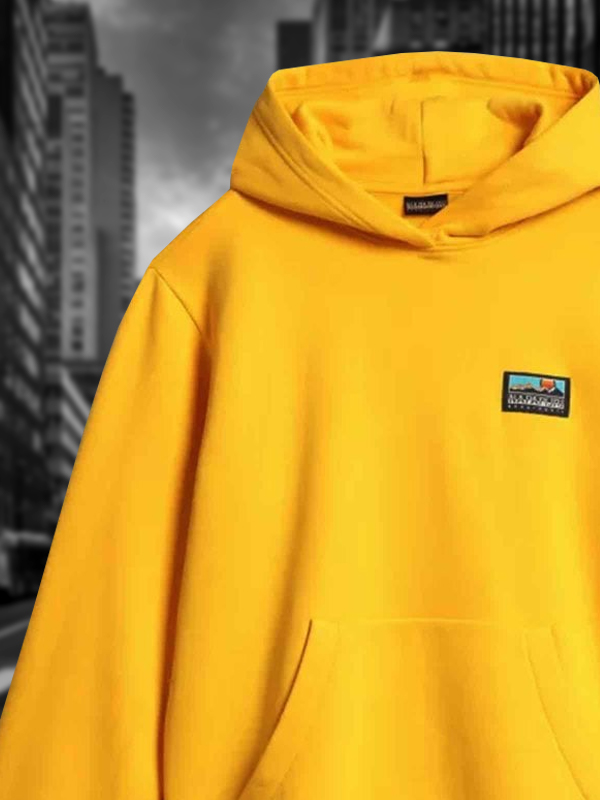Fjallraven, a Swedish outdoor clothing and equipment brand founded in 1936 by Ake Nordin, has long been associated with ethical and sustainable practices. Rooted in a love for nature and a commitment to preserving the environment, Fjallraven's commitment to sustainability is evident throughout its operations, including material selection, production processes, and supply chain management.
From its humble beginnings as a producer of innovative backpacks, Fjallraven has grown to encompass a wide range of outdoor gear, including clothing, tents, and sleeping bags. Throughout its evolution, the brand has maintained a strong focus on environmental stewardship, consistently seeking ways to minimise its ecological footprint while maximising the durability and functionality of its products.
Sustainable Designs
Fjallraven's sustainable designs are centred around a set of guiding principles that prioritise function, ease of use, and eco-friendly practices. The brand's focus on function and simplicity ensures that its products are not only user-friendly but also easily recyclable, contributing to a circular economy.
By embracing minimalist aesthetics and avoiding fleeting trends, Fjallraven creates style longevity, allowing customers to wear their garments for multiple seasons without feeling outdated. This approach promotes sustainable consumption habits and reduces the need for frequent wardrobe updates.
The brand also emphasises low material impact in its designs, selecting materials that have a minimal effect on the environment without compromising on quality and performance. Moreover, Fjallraven's commitment to material longevity extends beyond creating durable products; it also incorporates timeless designs that encourage long-term use and, ultimately, recyclability.
Sustainable Materials
The dedication to sustainability at Fjallraven is evident in its choice of materials, with the brand incorporating organic, renewable, and recycled materials into its product range. Examples of these eco-friendly materials include recycled wool, organic hemp, and Tencel, each selected for their minimal environmental impact and exceptional performance. Recycled polyester, another key component in Fjallraven's offerings, exemplifies the brand's commitment to a circular economy by repurposing existing materials and reducing waste. Fjallraven's proprietary G-1000 Eco fabric, a blend of recycled polyester and organic cotton, is another testament to the brand's innovative approach to sustainability, providing durable, weather-resistant garments with a reduced environmental footprint and used across the range including bags, hats and Fjallraven outerwear.
Traceable wool, sourced responsibly and adhering to strict animal welfare standards, further underscores Fjallraven's commitment to sustainable and ethical practices.
The commitment to sustainability extends to the brands’ stringent chemical guidelines, established in collaboration with the Swedish Chemicals Group. These guidelines ensure that the brand's products are manufactured without the use of harmful substances, safeguarding both the environment and consumer health. A notable example of Fjallraven's chemical responsibility is its move towards a no-fluorocarbons product range, offering PFC-free alternatives that minimise environmental pollution while maintaining the performance and durability expected from outdoor gear.
Furthermore, Fjallraven's dedication to ethical practices is reflected in its approach to animal welfare. The brand's Down Promise range, for example, guarantees the responsible sourcing of down, adhering to strict standards that prioritise the humane treatment of animals.
Environmental Stewardship & Protection
Fjallraven's ongoing efforts to promote sustainability extend beyond its product range, as the brand actively supports various environmental and social initiatives. For instance, Fjallraven is involved in projects aimed at protecting endangered species, such as the Arctic fox, and preserving threatened ecosystems, demonstrating its commitment to environmental conservation.
Their sustainable production processes are reflected in their adherence to a robust code of conduct, which is based on the guidelines set forth by the Fair Labor Association (FLA). By following the FLA's principles, Fjallraven ensures that its supply chain operates ethically, providing fair wages and safe working conditions for all employees involved in the production of its outdoor clothing and equipment.
In addition to its code of conduct, Fjallraven actively engages in collaborations with various organisations to promote sustainable practices within the industry. As a member of the Sustainable Apparel Coalition (SAC), Fjallraven joins forces with other industry leaders to drive environmental and social responsibility throughout the apparel sector. The brand's participation in the Fair Labor Association, which it joined in 2013, further highlights its dedication to ethical labour practices and transparency.
Fjallraven is also a signatory of the United Nations Global Compact, committing itself to the promotion of human rights, fair labour standards, environmental responsibility, and anti-corruption measures. By aligning itself with these global initiatives, Fjallraven demonstrates its unwavering dedication to responsible and sustainable production practices that not only benefit the environment but also the people involved in creating its products. This holistic approach sets a strong example for other brands within the outdoor clothing and equipment industry to follow.
Shop Fjallraven






















